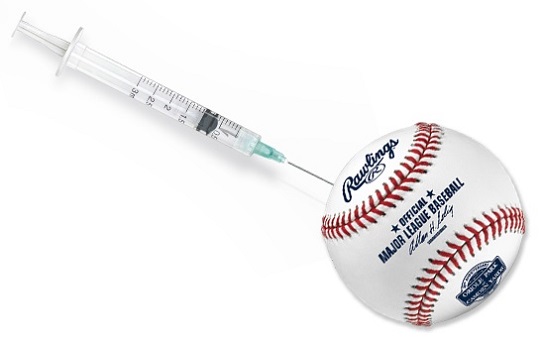Even though there have been many a wonderful story in Major League Baseball this season (the continued brilliance of Miguel Cabrera, the exceptional play of Chris Davis and the emergence of Yasiel Puig, just to name a few), the question people continue to ask is, "Do you think so-and-so is using PEDs?"
 |
| Photo from: sports.yahoo.com |
Of course, all these people are now applauding Bud Selig and MLB for taking a stand against these cheaters, when they're the ones that created the culture in the first place. Players have always looked for an advantage, and decade after decade baseball simply ignored it; everything from greenies to steroids.
Even though Major League Baseball is getting tougher when dealing with PED users, there are still questions that need to be asked on how to improve the process, and punishments for those using.
One of the questions that I have continued to ask my friends and colleagues in the radio world, is what are the guys taking and how damaging is it to your body? Everyone's concerned about nailing the cheaters, but no one is asking the tough questions about the specific substances that these players are using, especially in baseball.
Some of these things can be picked up at your local pharmacy and are non-addictive. If it's good enough for the weekend warrior, why isn't it good enough for some of the greatest athletes in the world? I believe all of the major sports, especially baseball, need to start embracing science a little more and do better research (just like the players) on what you can take that's beneficial to your body.
Money is an obvious motivator for using performance enhancing drugs, so baseball needs to come up with a proactive way of taking money away from players who have used banned substances.
A perfect example is Melky Cabrera, who popped positive for using PEDs in a year where he made $6 million, then in the offseason signed a deal with the Toronto Blue Jays for 2 years and $16 million. So you're telling me he was caught cheating and received a $2 million raise? No wonder players take their chances on using banned substances.
Major League Baseball has to find a way of taking bonus money away and making sure that if a player is caught it will not only cost him financially in the short-term, but long-term as well. Taking money out of their wallets is the best way to make guys think twice about using.
Baseball's punishment system has been taken to task over the last few weeks, with many people calling for way stiffer penalties against cheaters.
Alex Rodriguez has been at the center of steroid questions for the last several years, and now has a serious fight on his hands with MLB in regards to his 211-game suspension. Rodriguez may not be the most likable player in the sport, but he is well within his rights of appealing his suspension and the reasons behind it.
The two biggest things in A-Rod's favor are that he has never failed a drug test, and the fact that Major League Baseball is using the "he lied and misled" defense. Last year Melky was out creating fake websites to try and fool baseball into thinking he wasn't cheating, and all he got was 50 lousy games. Yet the league went as far as to threaten Rodriguez with a lifetime ban if he appealed his suspension.
Why should Rodriguez be treated any differently than Cabrera? The overall process and punishment should be the same for A-Rod as it would be for any low-level player hitting .200.
In the end I guess you could say that baseball has made progress from their stances on banned substances over the last 10 years, but they still have a long way to go.

Now that it no longer serves their purpose to have players who are using PEDs in the league, they want to crack down. It's a joke.
ReplyDelete